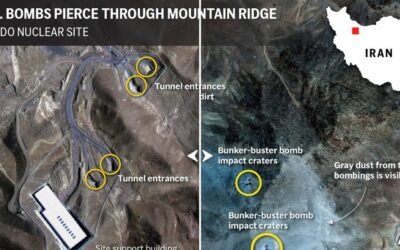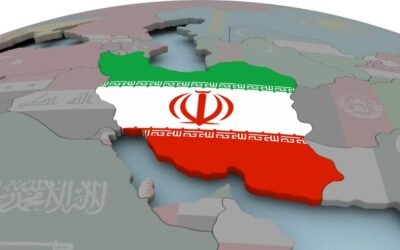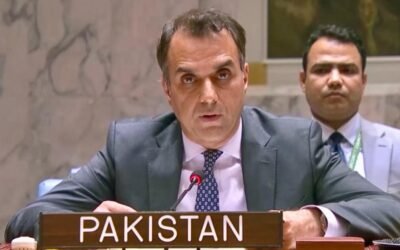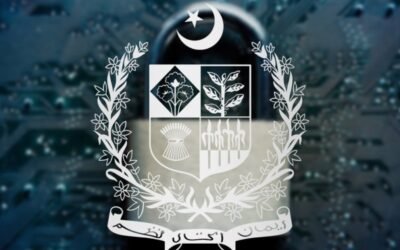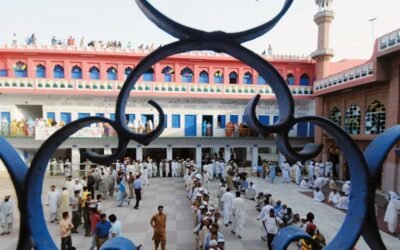The International Organization for Mediation (IOMed) is the world’s first intergovernmental body dedicated primarily to mediation in international disputes. Unlike arbitration or adjudication, mediation under IOMed emphasizes dialogue, consensus, and voluntary participation. It aims to resolve disputes between states, state–individual disputes, and even cross-border commercial conflicts.
IOMed was formally established on 30 May 2025 in Hong Kong, following years of preparatory work spearheaded by China. Its headquarters will be located at the historic former Wan Chai Police Station, which has been redeveloped into a mediation hub. The organization is expected to begin official operations in 2026, once its Secretariat, Governing Council, and Panels of Mediators are finalized.
Who Founded This Organization?
The initiative for IOMed came directly from the People’s Republic of China, reflecting Beijing’s long-held preference for mediation over adversarial adjudication. The project was announced in 2022, with a Preparatory Office set up in 2023 under the leadership of Dr. Sun Jin, a Hong Kong–based legal scholar.
China’s Foreign Minister Wang Yi represented Beijing at the signing ceremony, underscoring that IOMed has full political support from China’s central government.
Governance Structure
IOMed comprises:
-
A Governing Council (one representative per member; elects chair annually; aims for consensus decision-making).
-
A Secretariat led by a Secretary-General, handling daily administration.
-
Two Panels of Mediators, appointed for five-year terms—one for state-to-state and one for other disputes.
You May Like To Read: Deputy Prime Minister Ishaq Dar in Kabul to Attend Pakistan–China–Afghanistan Trilateral Foreign Ministers’ Meeting
Institutional Tools
IOMed’s Convention includes provisions for:
-
A Mediation Fund (via voluntary contributions) to ensure equitable access.
-
A Capacity Building Committee to promote training and best practices.
-
Enforceability: Mediated settlement agreements have binding legal weight in contracting states, paralleling mechanisms like the Singapore Convention on Mediation.
Operational Timeline
-
2022: Initial signing of Joint Statement by China and others.
-
February 2023: Preparatory Office formed.
-
2024: Convention drafting completed; signing scheduled.
-
30 May 2025: Convention signed; founding conference held.
-
Late 2025 to early 2026: Headquarters expected to begin operations
Member Nations of IOMed
At its founding in May 2025, 33 nations signed the IOMed Convention. The membership is heavily tilted toward Asia, Africa, and the Pacific, reflecting China’s focus on the Global South.
The founding members are:
- China, Indonesia, Pakistan, Cambodia, Laos, Djibouti, Algeria, Sudan, Serbia, Belarus, Benin, Zimbabwe, Venezuela, Nicaragua, Cuba, Dominica, Vanuatu, Nauru, Uganda, Ethiopia, Equatorial Guinea, Mozambique, Mali, Guinea-Bissau, Togo, Tanzania, Burundi, Madagascar, Comoros, Rwanda, Central African Republic, Democratic Republic of Congo, Republic of Congo.
This lineup reveals a clear geopolitical pattern: many members are either Belt and Road Initiative (BRI) partners or countries with strained relations with Western powers.
Scope, and Manifesto
The scope of IOMed is wider than most international legal bodies:
- State-to-state disputes
- State-to-individual disputes (such as investor–state conflicts)
- International commercial disputes between private actors
Its manifesto highlights values of mutual respect, equality, and consensus, echoing Confucian ideals of harmony. According to the IOMed Convention, mediation can proceed even while other dispute settlement proceedings (e.g., before the ICJ or PCA) are ongoing, as long as the parties agree.
China designed IOMed partly as a Global South–friendly alternative to what it considers Western-dominated institutions. For instance, many African and Asian nations see IOMed as a corrective to the “rules-based order” that often disadvantages developing countries.
Does It Rival Existing Institutions?
IOMed does not formally replace the ICJ, PCA, or WTO Dispute Settlement Body, but it introduces a parallel option. Critics, however, argue that IOMed could undermine Singapore’s rise as a dispute resolution hub, particularly since Singapore’s International Mediation Centre (SIMC) has mediated over 400 high-value cases since 2014.
As Justin Ko notes, IOMed is less likely to dominate private commercial disputes, where Singapore, Paris, London, and Dubai already command strong reputations. Instead, its comparative advantage lies in state-to-state mediation—an area with fewer established institutional competitors.
Implications for International Geopolitics
Empowering the Global South
Most IOMed members are small, economically weaker states—many of which have relied on “lawfare” at the ICJ to check stronger powers. With IOMed, they gain an additional venue where outcomes are less adversarial and more politically palatable.
China’s Strategic Play
IOMed strengthens China’s soft power, especially in Africa and Southeast Asia. By anchoring the headquarters in Hong Kong, China also signals its intent to maintain Hong Kong as a global legal hub despite concerns over its autonomy.
Limited Western Participation
Notably, no EU, NATO, G7, or U.S.-aligned Middle Eastern states joined the founding convention. This suggests that IOMed could evolve into a China-led Global South bloc in dispute resolution, potentially bypassing Western dominance in international law.
Sensitive Disputes Off the Table
Experts believe IOMed will avoid territorial disputes, especially those involving China itself, such as the South China Sea. Instead, it will focus on trade, investment, and economic issues, particularly those linked to the Belt and Road Initiative.
Cultural and Historical Context
China’s embrace of mediation is not accidental. Rooted in Confucian philosophy, mediation aligns with Chinese traditions of resolving disputes through consensus and “ritualized harmony” rather than court rulings. This contrasts with Western legal culture, which prioritizes adjudication.
Beijing also remembers its historical marginalization under the “rules-based order,” particularly during the Era of Humiliation. By leading IOMed, China aims to establish a framework more aligned with its worldview of cooperation without submission to Western powers.
Mediation promotes peace. 🕊
The establishment of International Organization for Mediation (IOMed) in Hong Kong, China will provide a fresh, complementary approach to resolving international disputes—offering humanity a new path toward harmonious relations. pic.twitter.com/1xXvM29a9q
— CHINA MFA Spokesperson 中国外交部发言人 (@MFA_China) May 30, 2025
Future Prospects, and Challenges
- Enforcement gap: Mediation outcomes lack the robust enforcement system that arbitration enjoys under the New York Convention. Unless IOMed develops a clear enforcement protocol, some states may hesitate to rely on it.
- Competition with Singapore: Hong Kong faces stiff competition from Singapore, which remains Asia’s premier dispute resolution hub. Analysts suggest IOMed should focus on state-to-state and investor–state disputes rather than challenge Singapore in private commercial cases.
- Geopolitical caution: Countries wary of China or closely aligned with the U.S. are unlikely to join, limiting IOMed’s universality.
Conclusion
The International Organization for Mediation (IOMed) marks a bold experiment in reshaping global dispute resolution. While it will not replace the ICJ or PCA, it provides a new diplomatic tool for the Global South, especially BRI partners.
For China, it is both a soft-power play and a cultural assertion: exporting its preference for consensus-based mediation into global governance. Whether IOMed becomes a lasting institution depends on its ability to deliver results, ensure enforceability, and attract broader membership.
In any case, its emergence signals a slow but significant shift in the balance of international law—from a Western-dominated order to a multipolar, contested legal landscape.
You May Like To Read: U.S. Sanctions ICC Officials in Controversial Retaliation Amid Global Condemnation




















